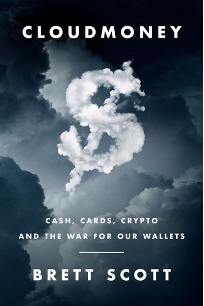Brett Scott
2022
A journalist, economic anthropologist and financial activist. In 2013 he published The Heretic’s Guide to Global Finance: Hacking the Future of Money, a guide to high finance and the emergent forms of alternative finance, alternative currencies and activism that are challenging it. He has spoken at hundreds of events across the globe, has written for the Guardian, New Scientist, Huffington Post, Wired, and CNN.com, and has appeared across international media, including BBC World News and Sky News. He has worked on financial reform campaigns and alternative currency systems with a wide range of groups, and is a Senior Fellow of the Finance Innovation Lab (UK). He lives in Berlin.
A monetary anthropologist shows how physical cash stands in the way of a dangerous “cashless” digital money empire, one that will allow Big Tech and Big Finance to merge into one, with dire consequences for our civil liberties, psyches, and planet.
Since the 2007 Global Financial Crisis, banking giants have retreated from the public spotlight, giving center stage to Big Tech corporations that reach into our lives via our digital devices. Big Finance firms, however, have taken advantage of this to reinvent their own image via fintech innovations that paste a new digital face over their old practices. Now, behind our friendly-looking smartphone apps, a dangerous system of financial control and surveillance is emerging, forged from a symbiotic fusion of Big Finance and Tech.
In this timely and eye-opening book, Brett Scott shows how this fusion requires “cloudmoney”—digital money underpinned by the banking sector—to replace physical cash. Scott clearly explains the technical, political, and cultural differences between our different forms of money, and shows how the cash system has been under attack for decades, as banking and tech companies promote a “cashless society” under the banner of progress” (a process accelerated in the wake of Covid-19). Scott reveals the deep class politics beneath this, lays out the coming battles between techno-utopians and those who do not want to exist in the Cloud, and critically analyzes the claims made by cryptocurrency promoters, who believe blockchain technology offers an escape. Cloudmoney paints a stark portrait of a future that is closer than we think, and offers a defense of slowness—and the physical—in a world caught in an accelerating vortex of the digital.


